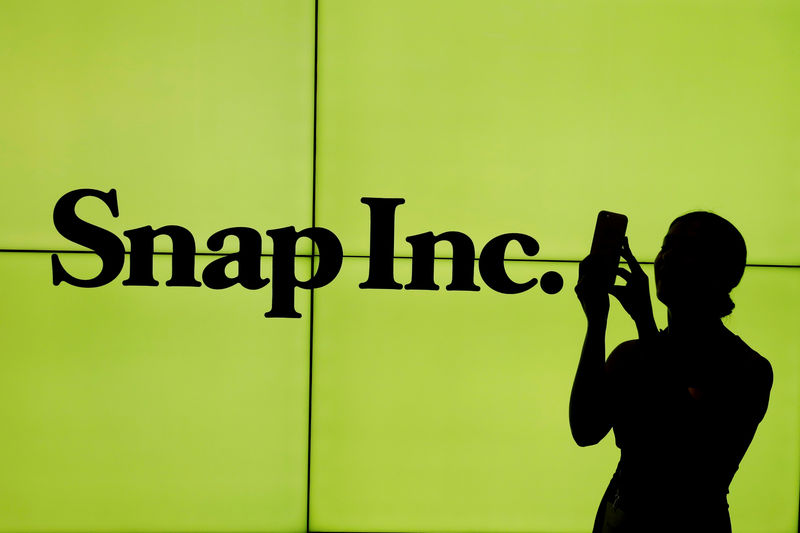By Anya George Tharakan and Lewis Krauskopf
(Reuters) - Here one minute, gone the next.
While that is the premise of Snap Inc’s popular messaging platform, investors also saw any gains from its red-hot IPO disappear when shares plunged far below their initial sale price on Tuesday.
Morgan Stanley , a lead underwriter on the company's initial public offering, slapped a price target of $16 on the stock - a buck below its March IPO price. Analyst Brian Nowak wrote in the note that "we have been wrong about Snap's ability to innovate and improve its ad product this year."
Snap shares got slammed, slumping nearly 9 percent in heavy trading volume to close at $15.47. It was a 47 percent bump down from the $29.44 intraday high they hit the day after the IPO.
“There’s a lot of people betting that this stock is going down and I think this analyst is just adding fuel to the fire,” King Lip, chief investment officer at Baker Avenue Asset Management in San Francisco, said of Morgan Stanley's downgrade.
The bank cut its rating to "equal-weight" from "outperform" and slashed its price target to $16 from $28, below the median target of $19.50.
The ratings move was a rarity by a lead underwriter so soon after a listing. Goldman Sachs (NYSE:GS), another lead underwriter, still has a "buy" rating on the stock and an unchanged $27 price target.
"We have been wrong about Snap's ability to innovate and improve its ad product this year and user monetization as it works to move beyond "experimental" ad budgets into larger branded and direct response ad allocations," Nowak wrote.
Nowak raised concerns about Snapchat parent's ability to compete with Facebook (NASDAQ:FB) Inc's Instagram. Snap's user growth trends have been modestly weaker than expected.
In the downgrade report, Morgan Stanley (NYSE:MS) also cut its estimates for Snap's 2017 revenue by 6.9 percent to $897 million and lowered its expectations for daily active users by 1.6 percent to 182 million.
Snap and Morgan Stanley declined to comment on the downgrade.
LONGS VS SHORTS
Short-sellers were placing bets on Tuesday that Snap would continue to fall, representing about 2.4 percent of trading volume in the stock by midday despite it being one of the most expensive to borrow on Wall Street.
A fresh round of selling could follow the July 29 expiry of the stock's lockup period, after which certain insider investors will be allowed to unload their shares.
Snapchat is popular with users under 30, but many on Wall Street have long been critical of Snap's lofty valuation and slowing growth. The company's current market value was about $18.3 billion.
Facebook, which once made a $3 billion bid for Snapchat, has made the camera central to its own apps and offers Snapchat-like features on its Instagram and WhatsApp platforms.
In June, Instagram said its Stories feature had 250 million users, compared with 166 million users for Snapchat at the end of the first quarter.
"You have a one, two, three punch here: Slowing growth, advertisers are still favoring established platforms and a very, very threatening competitor," said Philippe Collard, founder of management consulting firm Yabusame Partners, which specializes in the tech industry.
"Probably, people are sitting on the sideline saying, 'What do I do with Snap, is it going to be another Twitter?'"
Shares of Twitter, which went public in 2013, now trade about 30 percent below their IPO price.

Some big names took stakes in Snap during the first quarter, including billionaire George Soros' hedge fund, activist hedge fund Jana Partners, Daniel Loeb's Third Point and Daniel Och's Och-Ziff Capital Management.